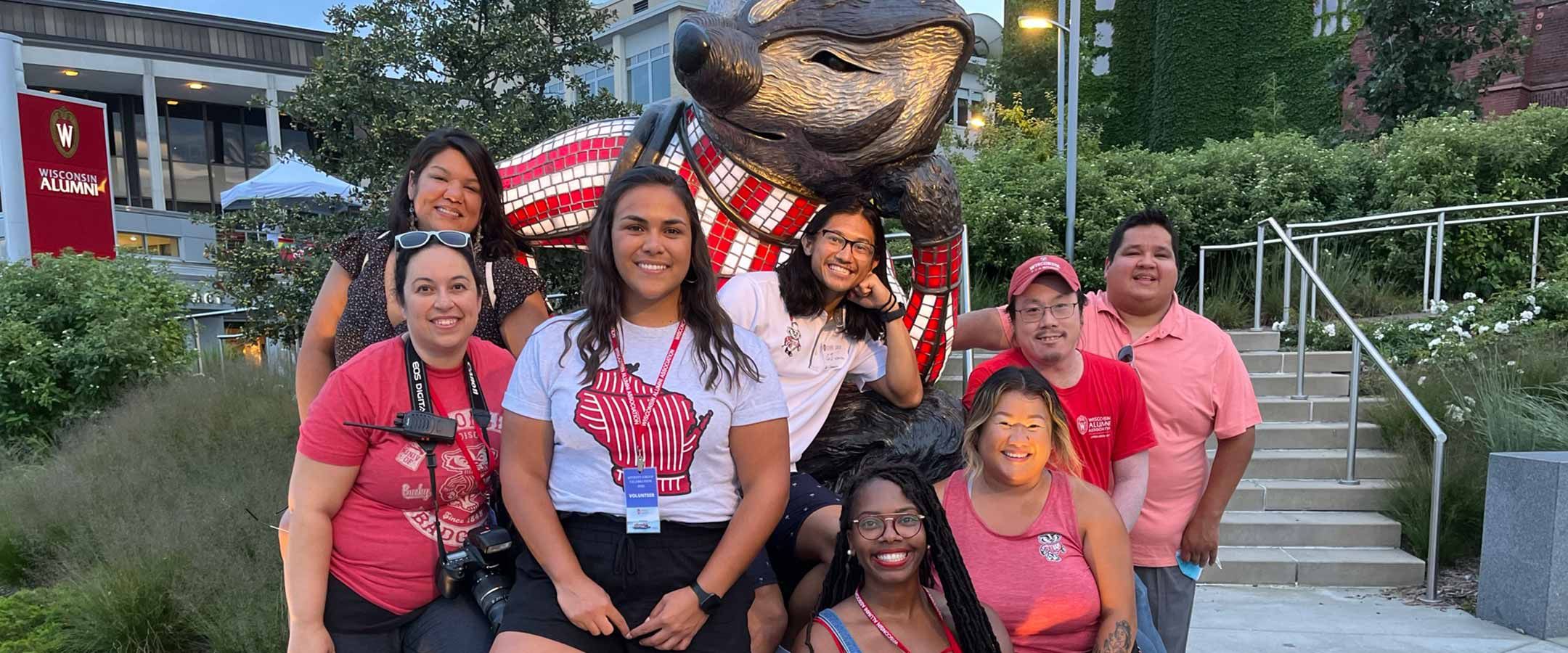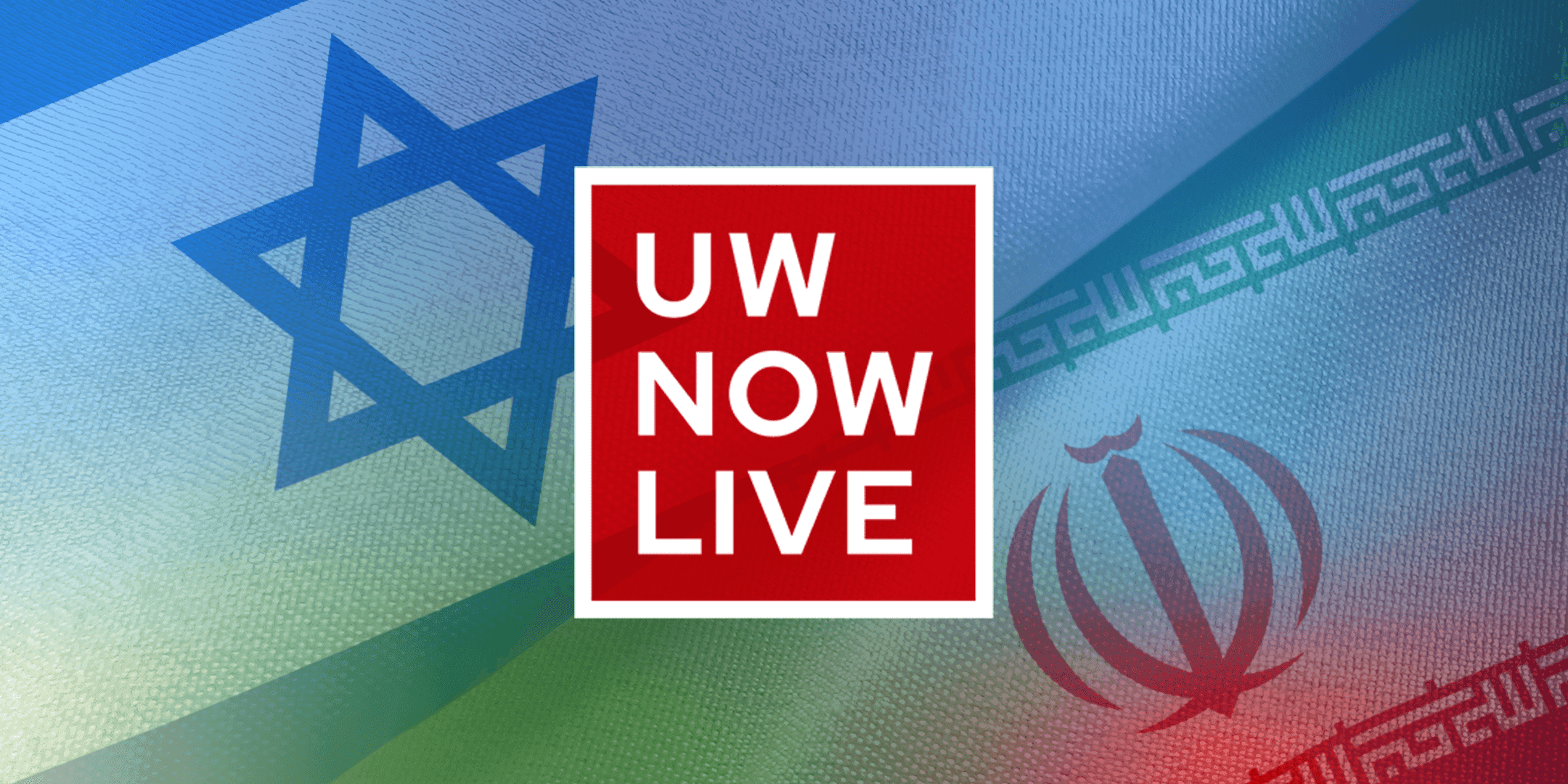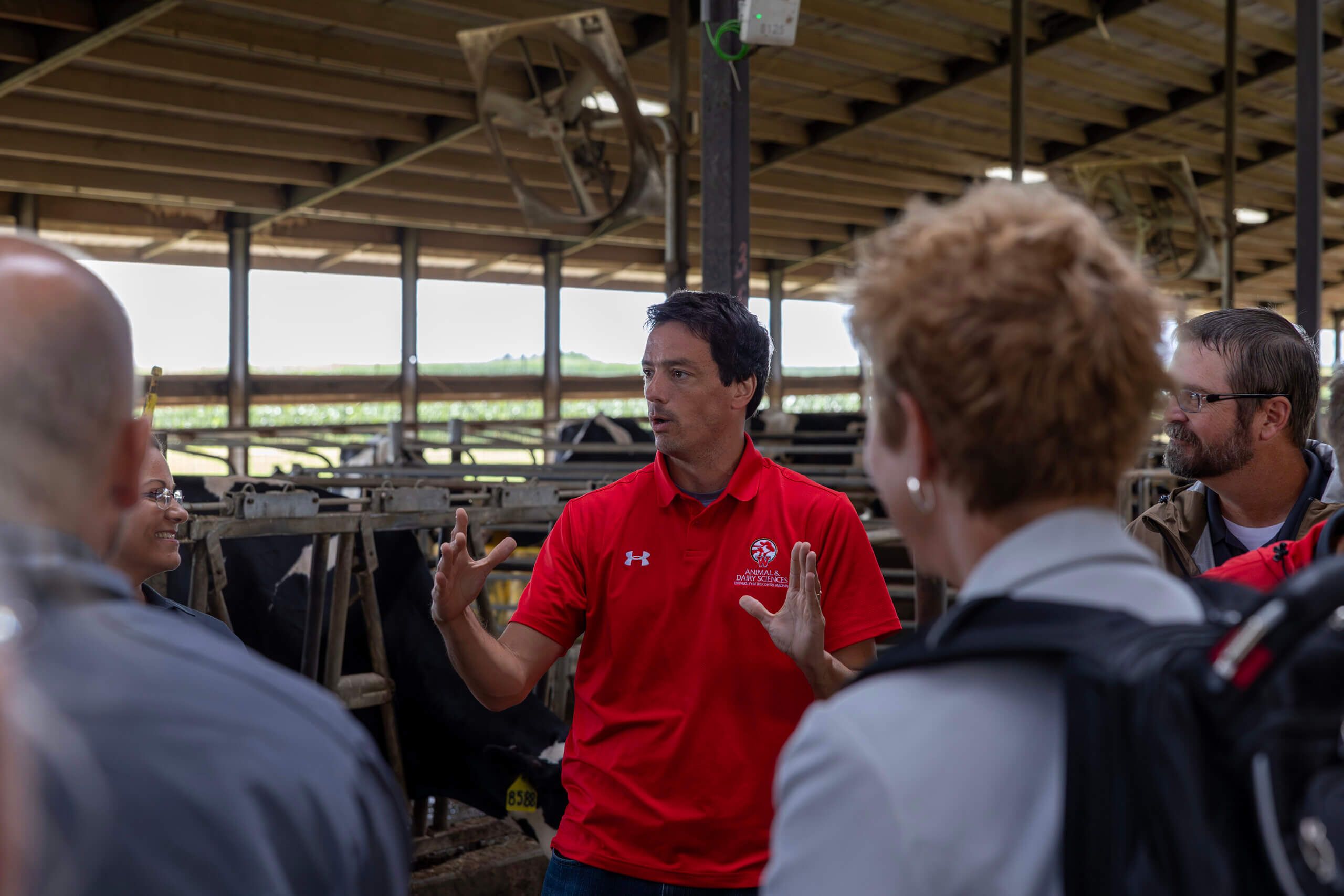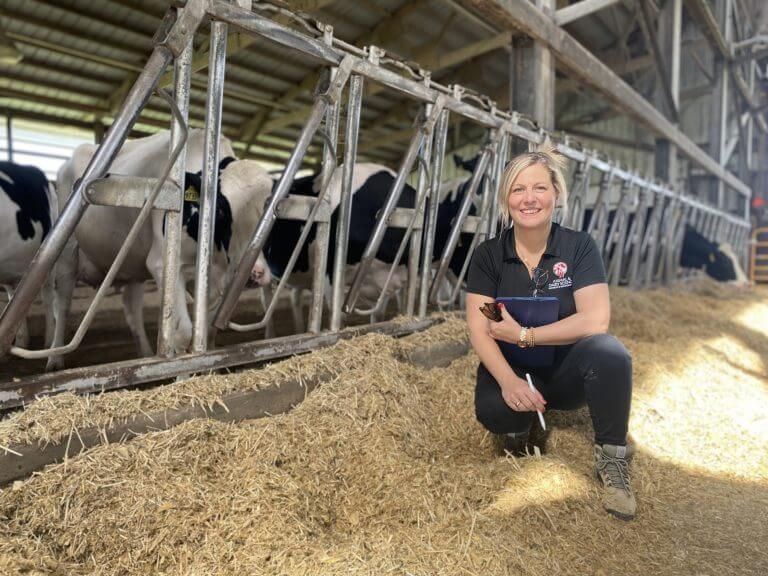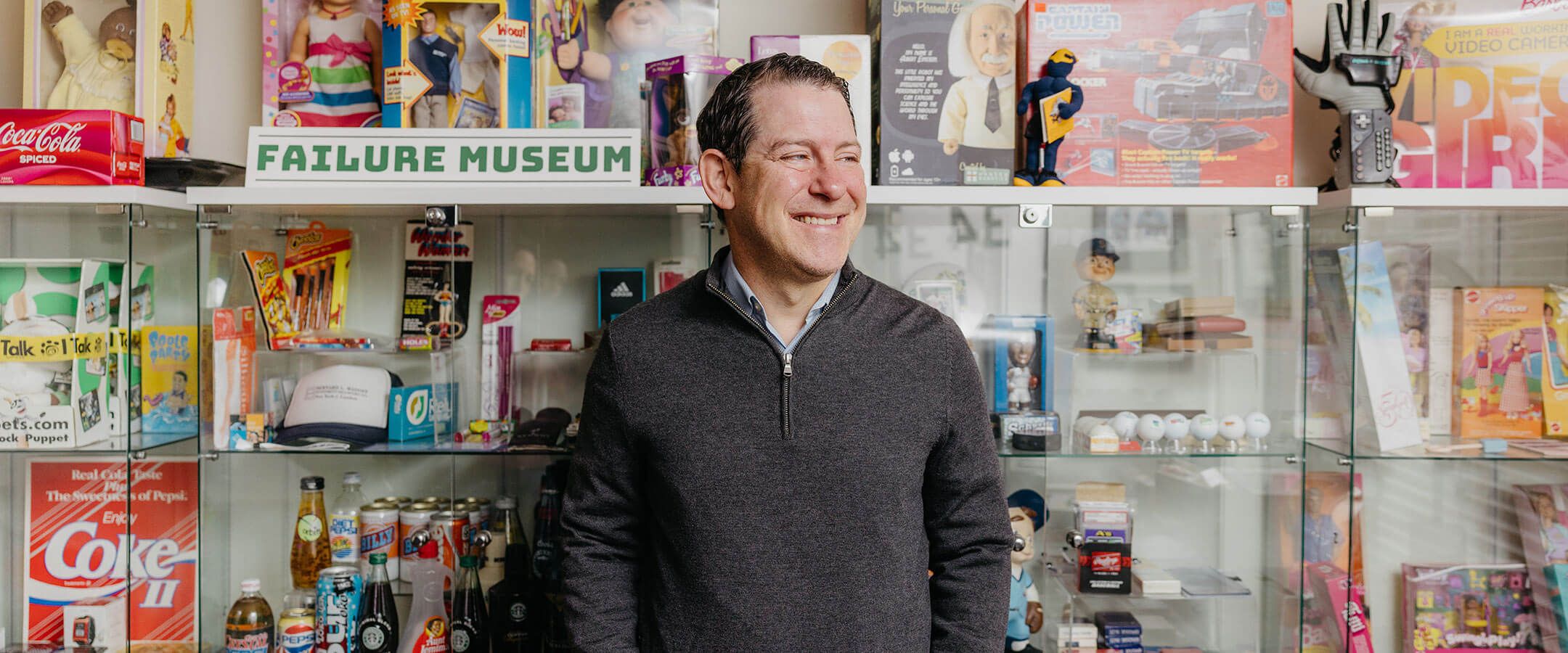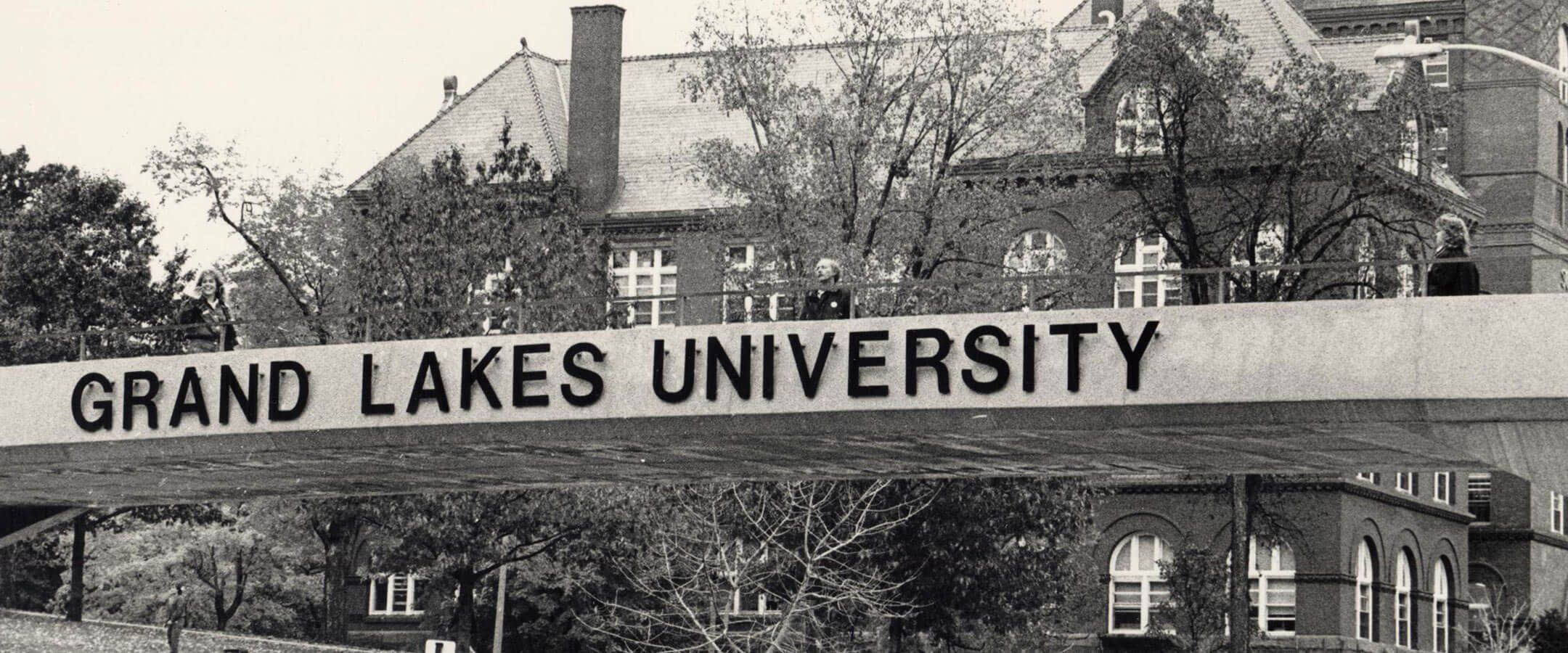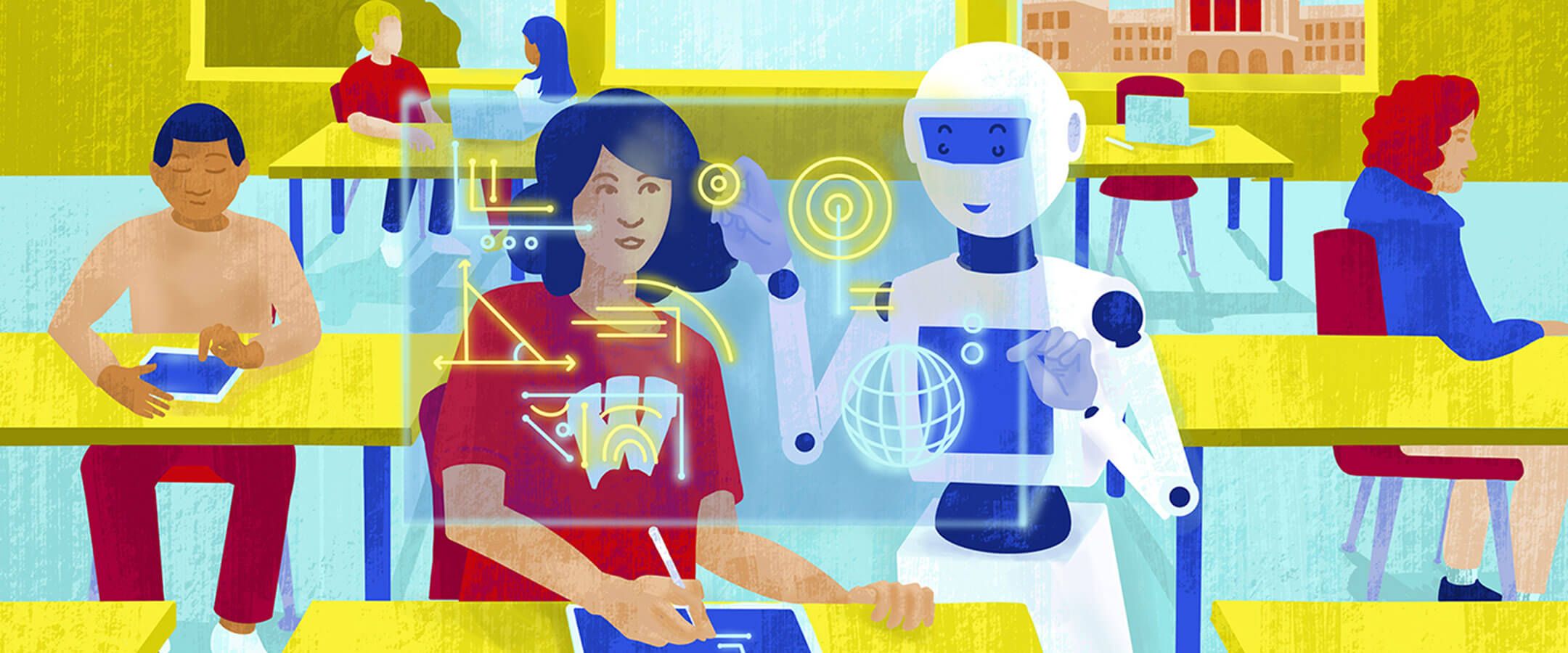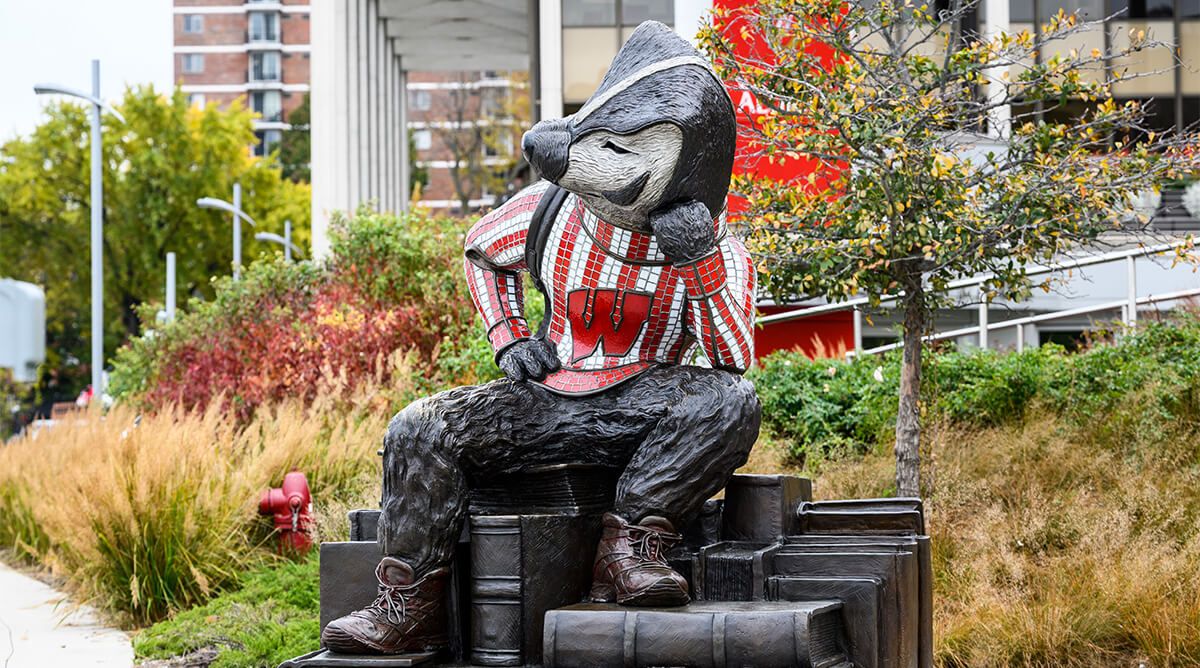“We are somebody. We are students of color at the University of Wisconsin–Madison expanding our minds to new dimensions,” declares a 1990s Wisconsin Alumni Association (WAA) pamphlet on diversity. “We are somebody. We are returning in triumph, extending the ladder from which we’ve climbed to those now aspiring to follow in our footsteps. Our voices are many, our vision is one.”
As the above quote suggests, the path to a degree isn’t the same for all Badgers. Some grads have had additional barriers to earning their diplomas, and they’ve struggled to feel welcome in the alumni community. To facilitate a sense of belonging for all Badgers, in 1990 WAA hired the Big Ten’s first paid director of multicultural affairs and special interest groups, Steve Braunginn ’79, MA’90.
Throughout the 1990s, Braunginn began the process of making space for historically marginalized Badgers through affinity groups — branches of UW alumni run by volunteer leaders and organized around shared identities. In addition to building a community for Badgers navigating careers and alumnihood, the groups provide mentorship and support to make the journey to a degree easier for students of similar backgrounds.
That first decade saw the formation of four groups: the African American Alumni Association (Quad A); the American Indian Alumni Council; the Gay, Lesbian, Bisexual, or Transgender Alumni Council; and the Hispanic and Latino Alumni Association.
By 2015, each of these groups had petered out following flagging engagement and inconsistent transitions in leadership. In 2019, WAA hired Pasha Thao ’16 to reestablish the affinity groups, add more opportunities for engagement, and revive the shared vision to support Badgers at all stages of their educational and professional paths.
Today, there are five active organizations, all led by volunteer alumni boards: the Black Affinity Group, the Asian Pacific Islander Desi American (APIDA) Affinity Group, the Cooweeja Native and Indigenous Affinity Group, the Latinx Affinity Group, and the Rainbow Affinity Group.
Members organize movie nights, special Homecoming events, professional development opportunities, educational series, and more.
“Affinity groups are spaces for folks to come together and be in community,” says Thao, “whether that be through Badger spirit activities or networking opportunities.” The groups also often help sponsor heritage month celebrations for students on campus and welcome new grads into alumnihood with special graduation programs.
Affinity group executive leaders are based in the Madison area, but the goal is to expand each group with regional directors around the country, making it easier than ever to connect with fellow Badgers through shared interests and backgrounds.
Thao also hopes to be able to offer more affinity groups in the future. “There are a lot of different identities that are not currently represented,” she says. “I’ve had alumni share with me that they’re interested in a multicultural affinity group as well. I’m hoping there will be more interest out there as [alumni] see activity from the current affinity groups.”
